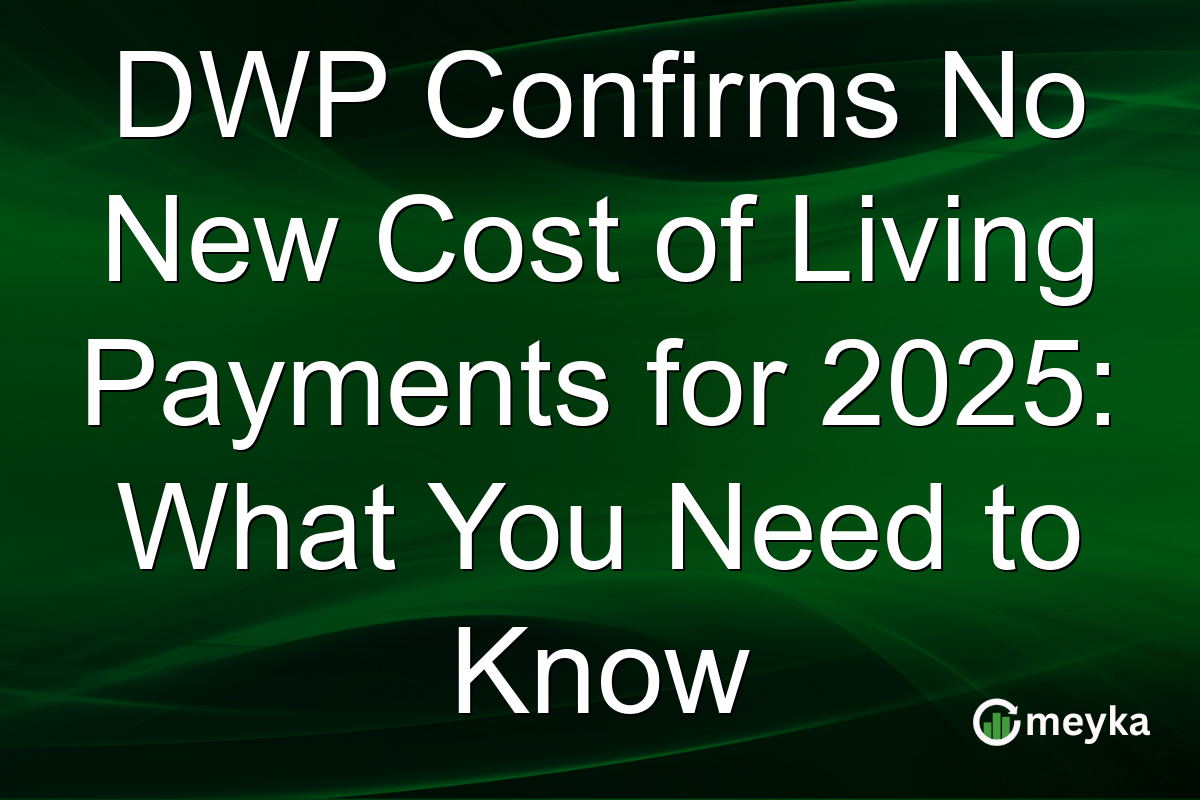DWP Confirms No New Cost of Living Payments for 2025: What You Need to Know
The Department for Work and Pensions (DWP) recently announced there will be no new cost of living payments for 2025. This decision has led many to wonder how they will cover rising expenses. As we navigate through this development, it’s crucial to understand the available alternatives such as the Household Support Fund and related benefit eligibility options. Let’s explore what this means for families and individuals across the UK.
Understanding the DWP’s Decision
The DWP, a critical entity in managing welfare in the UK, has confirmed there will be no additional cost of living payments this year. This announcement may leave some questioning their financial stability, especially with the rising cost of necessities. However, the government emphasizes that other forms of support remain available. This decision aligns with the government’s broader fiscal management strategy, aiming to control public spending while still providing targeted aid where needed. Amid economic pressures and inflation concerns, this move signifies a shift towards more strategic resource allocation, potentially affecting low-income households more significantly. Despite the absence of these payments, officials reassure that existing benefits will continue to support many families. This shift necessitates an exploration of other financial relief options, making it imperative for those affected to consider alternative support mechanisms.
Exploring the Household Support Fund
With no new DWP cost of living payments for 2025, the Household Support Fund emerges as a key resource. This fund is designed to provide targeted relief to those most in need. It offers grants to help cover essential costs such as food and utilities. According to official guidelines, local authorities allocate these funds directly, making it crucial for eligible individuals to contact their local council to access support. Eligibility may vary depending on specific criteria set by each council. The Household Support Fund represents a lifeline for many, helping bridge the gap in financial aid. However, awareness and timely application are essential as resources may be limited. By tapping into these funds, families can better manage their living costs without additional DWP payments.
Alternative Benefits and Eligibility
In addition to the Household Support Fund, individuals should assess other benefits they may qualify for. The UK’s welfare system includes various aids, such as Universal Credit, housing benefits, and tax credits, which remain accessible. Benefit eligibility is crucial and demands attention to detail. Consider visiting resources like the GB News guide for understanding which benefits you might qualify for. This proactive approach ensures that all potential support avenues are explored. For many, the changing landscape of welfare marks an opportunity for reassessment. Evaluating benefit eligibility and understanding options can significantly alleviate financial stress, even without the supplement of new DWP payments.
Preparing for the Future
Adjustment is essential as we move into a future where traditional DWP payments are not part of the financial landscape. Proactive planning and utilising available resources effectively can prepare households for economic uncertainties. Financial literacy gains importance, equipping families to manage funds from alternative sources, such as the Household Support Fund and personal savings. Additionally, exploring community support services can provide further aid. This evolving scenario emphasizes resilience and adaptability in financial planning. Leveraging existing benefits and exploring new avenues will ensure that households remain supported, despite the absence of new DWP payments.
Final Thoughts
The discontinuation of new cost of living payments by the DWP in 2025 signals a shift toward other support mechanisms like the Household Support Fund. By understanding and utilizing available resources, families can navigate financial challenges with greater confidence. For those seeking data-driven insights into navigating these changes, platforms such as Meyka offer invaluable tools and analysis to support informed decisions. Exploring every opportunity for assistance will be crucial for sustainable financial management in the coming years.
FAQs
The DWP aims to manage public spending more strategically while maintaining targeted support through resources like the Household Support Fund and existing benefits.
Eligible individuals should contact their local council, as funds are allocated through local authorities based on specific criteria and needs assessment.
Yes, various benefits remain accessible, including Universal Credit, housing benefits, and tax credits, all of which demand careful evaluation of eligibility.
Disclaimer:
This is for information only, not financial advice. Always do your research.






